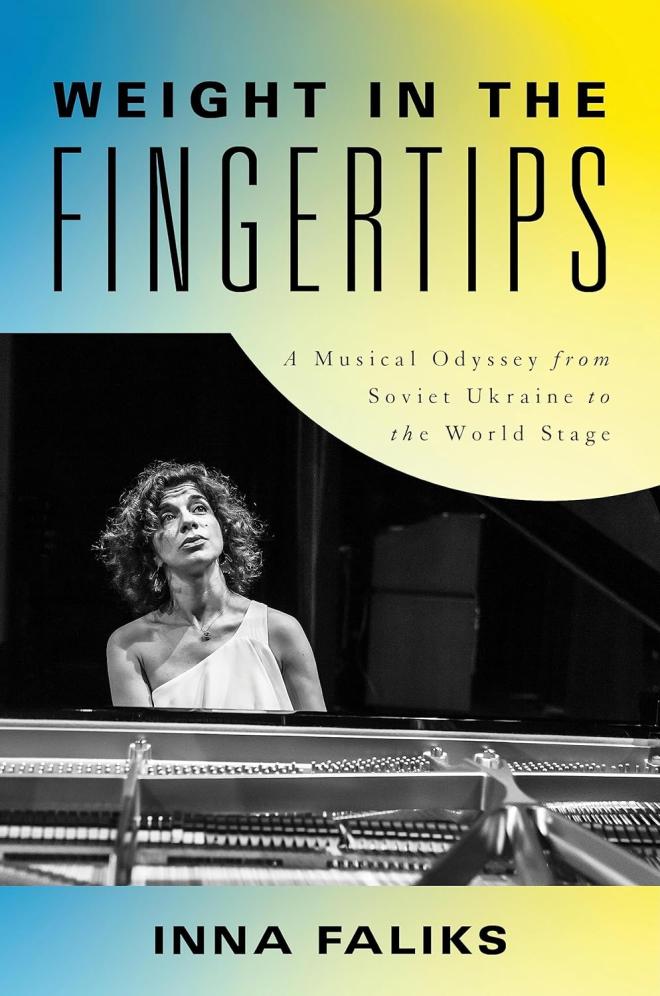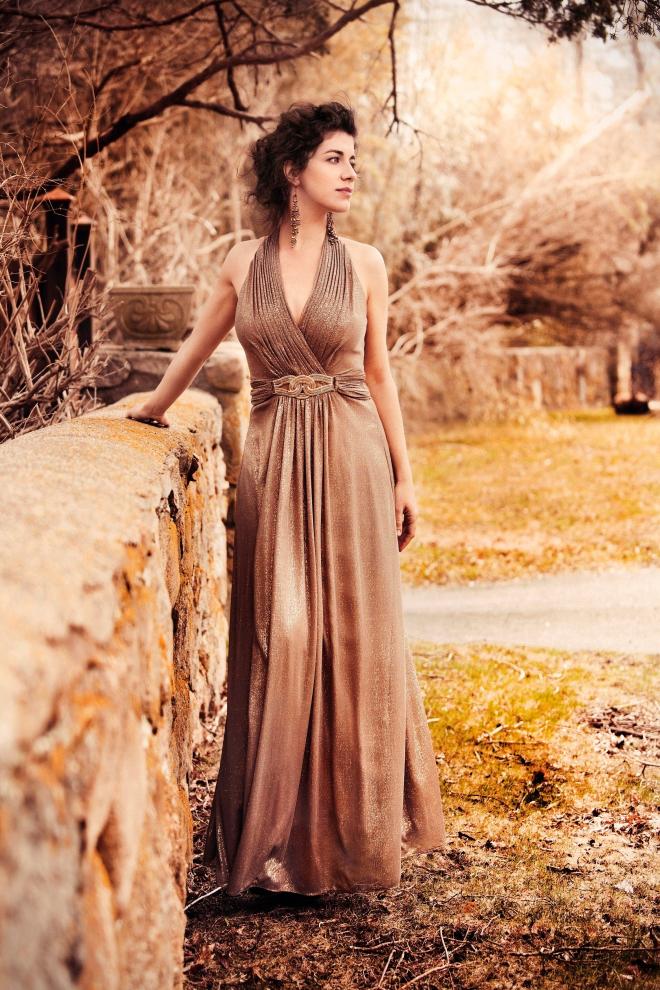The pianist Inna Faliks is the featured soloist with the Inscape Chamber Orchestra at the National Gallery of Art on March 10, 2024. She’ll perform the Piano Concerto by Clara Schumann and the world premiere of “Lilith,” a concerto written especially for her by Clarice Assad. The concert commemorates International Women’s Day (March 8).
In addition to her recitals and concerto performances around the world, Ms. Faliks has recently published a book, Weight in the Fingertips: A Musical Odyssey from Soviet Ukraine to the World Stage, and her new recording on Sono Luminus will be released in May.
Inna Faliks is no stranger to WETA Classical. She has been featured on our Monday night program Front Row Washington. Host of the program, John Banther, speaks with Ms. Faliks about her upcoming program, her book, and new recording.
John Banther: You’ll be premiering Clarice Assad’s piano concerto “Lilith” at the National Gallery of Art on March 10. Tell us about your collaboration with Clarice Assad, and about working with her.
Inna Faliks: Clarice understands me as a pianist — she knows of my big temperament, my coloristic impulses, how I love to lean into gesture, direction, the sound world and character world of any given moment. Lilith is a powerful female figure, full of a sensuous energy, of godlike power. The concerto is not a long work but one that I think audiences will love and truly relate to. Clarice's jazz background and Brazilian and Middle Eastern roots come through — as does her love of Ravel. It is a very distinct voice, a very distinct concerto.
JB: Your book, Weight in the Fingertips: A Musical Odyssey from Soviet Ukraine to the World Stage, was published a few months ago by Backbeat Books. What made you want to write a book? Why this story? Why now?
IF: I started writing the book 12 years ago, just vivid scenes and memories from my childhood in Odessa. I was 8 months pregnant and an orchestra had just rebooked me to the following summer because the performance was the same day as my due date. So, I was in my apartment in New York City, hot, bored and very pregnant, and it just started writing itself. I have always written — poetry, prose, articles that have been published. It all felt very natural to me, and a process that I take huge pleasure in. It is immensely creatively satisfying.
The book went through many, many layers, changes over the years. The early chapters as well as the romantic arch of the story served as the basis for my Polonaise—Fantasie the Story of a Pianist show and recording on the Delos label. I had published an article about touring in China in The Washington Post — that became a chapter. Covid happened. I lost my Mom to brain cancer. The war with Ukraine began. So, layers and layers were added on to the book. A story of a Jewish Ukrainian concert artist, at a time in our world when women's voices, their struggles are perhaps heeded to a little more than before, seems timely. Also, I wanted to communicate, in this book, the passion and joy of a life in music, in a way that is exciting to read for everyone, not just musicians.
JB: Lots of people have the idea to write a book, but not all ideas end up as a memoir printed by a publishing house. At what point did you realize the book would be so well regarded?
IF: This is something I of course can hope for but something I do not expect or think about, really. I wrote the way I did, because I wanted to write a good book that would be "unputdownable" for people and that would communicate something in a fresh, honest, funny and moving way.
JB: What do you hope readers take away from the book?
IF: I think this is a very honest book. It discloses a lot of very personal things — artistic struggles, personal struggles, romantic struggles. But, ultimately, it hopefully communicates an immense love of life, of people, of my art.
JB: Your forthcoming album Manuscripts Don’t Burn is, in a way, a companion to your memoir. How are they related?
IF: The record contains music that, in some way, echoes things that are important to me, a kind of journey pieces together with pieces of a puzzle, all of which are autobiographical.
The cornerstone works on the album are two compositions for ‘speaking pianist’ that the Wende Museum commissioned for me: “Master and Margarita Suite” by Veronika Krausas, and “Manuscripts Don’t Burn” by Maya Miro Johnson. Both of these pieces are inspired by the book The Master and Margarita. This book, a cult classic written in the 1930s by Mikhail Bulgakov has been a throughline in my life. It has also been getting a great deal of attention this spring, because a film adaptation of the novel is in theaters now.
"Voices" by Ljova Zhurbin connects to my Jewish identity, to being from Odessa, like the cantor Gershon Sirota whose voice appears in the piece. It is an incredible triptych, and I am very proud to have it on this recording. Mike Garson wrote a wonderful piece for me, “Psalm for Odessa”. Mike was keyboardist for David Bowie, for over 30 years. He is an amazing musician, knows everything about the piano, and the music crosses genres, like many other things on this album. Fazil Say's “Black Earth” refers the land across from Odessa on the Black Sea: Turkey, whose tastes, smells, sounds are part of this Mediterranean land, close to where I come from. Erlking and By the Sea, songs by Schubert arranged for piano by Liszt — some of this music I’ve played all my life. It complements the Master and Margarita Faustian element beautifully, and also plays with the idea of music and words, as do most of the works on the album.
I had a series in New York City, Music/Words — that is another element that binds the pieces together, the interplay of poetry, literary references, words, and music. Clarice Assad's piece, “Godai”, was written specifically with this in mind, and has the pianist recite poetry that was specifically written for the piano work. That, of course, goes right back to the book! The disc features four female composers — something that is very important to me, and something I discuss in my book, as well.
JB: Your performance in Washington is a homecoming of sorts, since you studied at Peabody Institute. As you return to the area, what are one or two memories that stand out for you?
IF: It is always a pleasure to return to the area to perform, one of the most historic and beautiful in the country. As for adventures and memories of Peabody and beyond — read my book to find out ! :)
PBS PASSPORT
Stream tens of thousands of hours of your PBS and local favorites with WETA+ and PBS Passport whenever and wherever you want. Catch up on a single episode or binge-watch full seasons before they air on TV.

